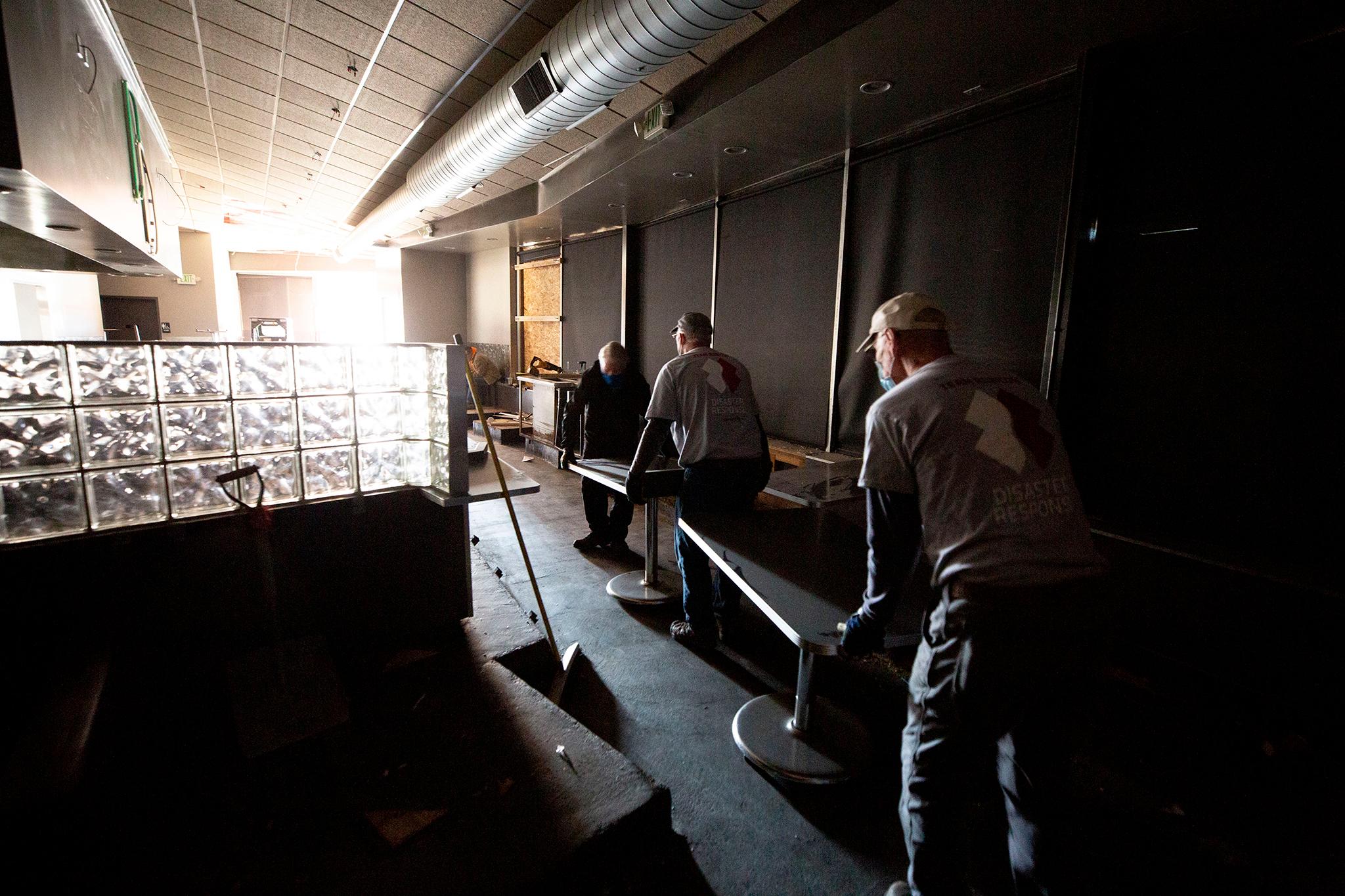It was very dark in the Denver Diner when Brad Horner and his crew showed up to haul out some furniture. The windows have been boarded up since the local classic closed in 2021, and the team from Team Rubicon stepped carefully into the din to inspect their prize.
They'd arrived for tables that once held eggs, turkey melts and chile at all hours. They'll handle food again, but for a completely different clientele who may have a different menu in mind.
Hauled into a truck and driven to Aurora, the diner's furnishings joined a warehouse space packed with tables, chairs, couches and cribs destined for new life. Their destinations: the homes of Afghan refugees who fled their home country as the United States abandoned its decades-long occupation.
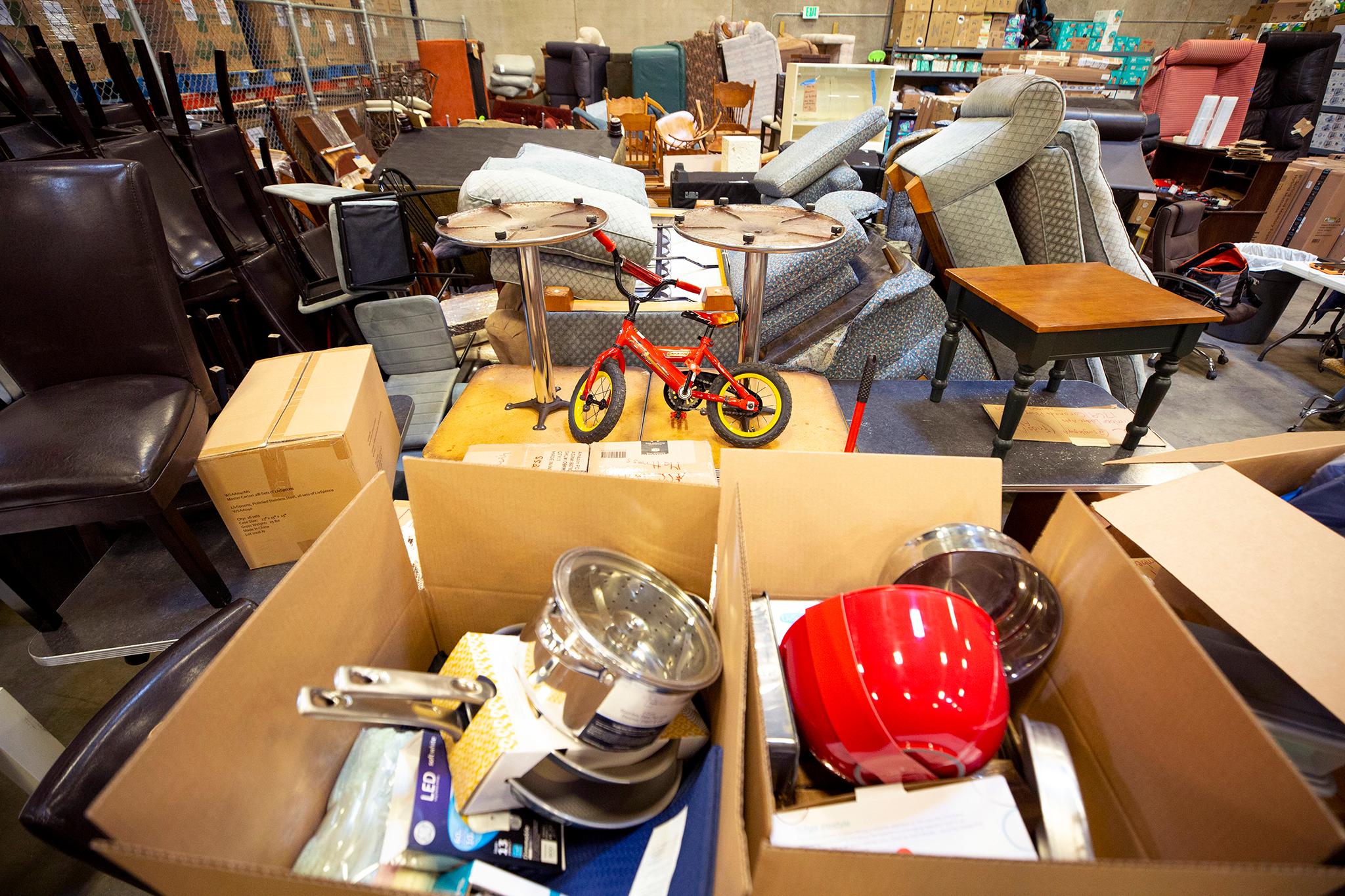
Nonprofits in Denver are working feverishly to resettle people as quickly as possible, but they need to overcome some lasting capacity problems.
About 80,000 Afghans have arrived in the U.S. since last summer. Many of them fought through crowds at the Kabul airport to board planes before western forces pulled out completely in August. Others turned to social media to plead for help from anyone who would listen and managed later to get on flights. Some went to other countries. Those who made it here were first settled on military bases in five states before they filtered into American cities. Anyone who didn't have family or friends to stay with had to wait in line for resettlement agencies to find arrangements for them.
But nonprofits around the country are dealing with reduced capacities that date back to President Trump's administration, and it's been tough to keep up with demand for housing and supplies.
In 2018, U.S. agencies announced Trump had drastically cut the number of refugees allowed into the country. Many resettlement groups rely on funding doled according to each person they help, and service providers warned these cuts could kneecap their ability to respond to a sudden crisis. President Biden increased that cap (perhaps begrudgingly) in 2021, but the damage had been done.
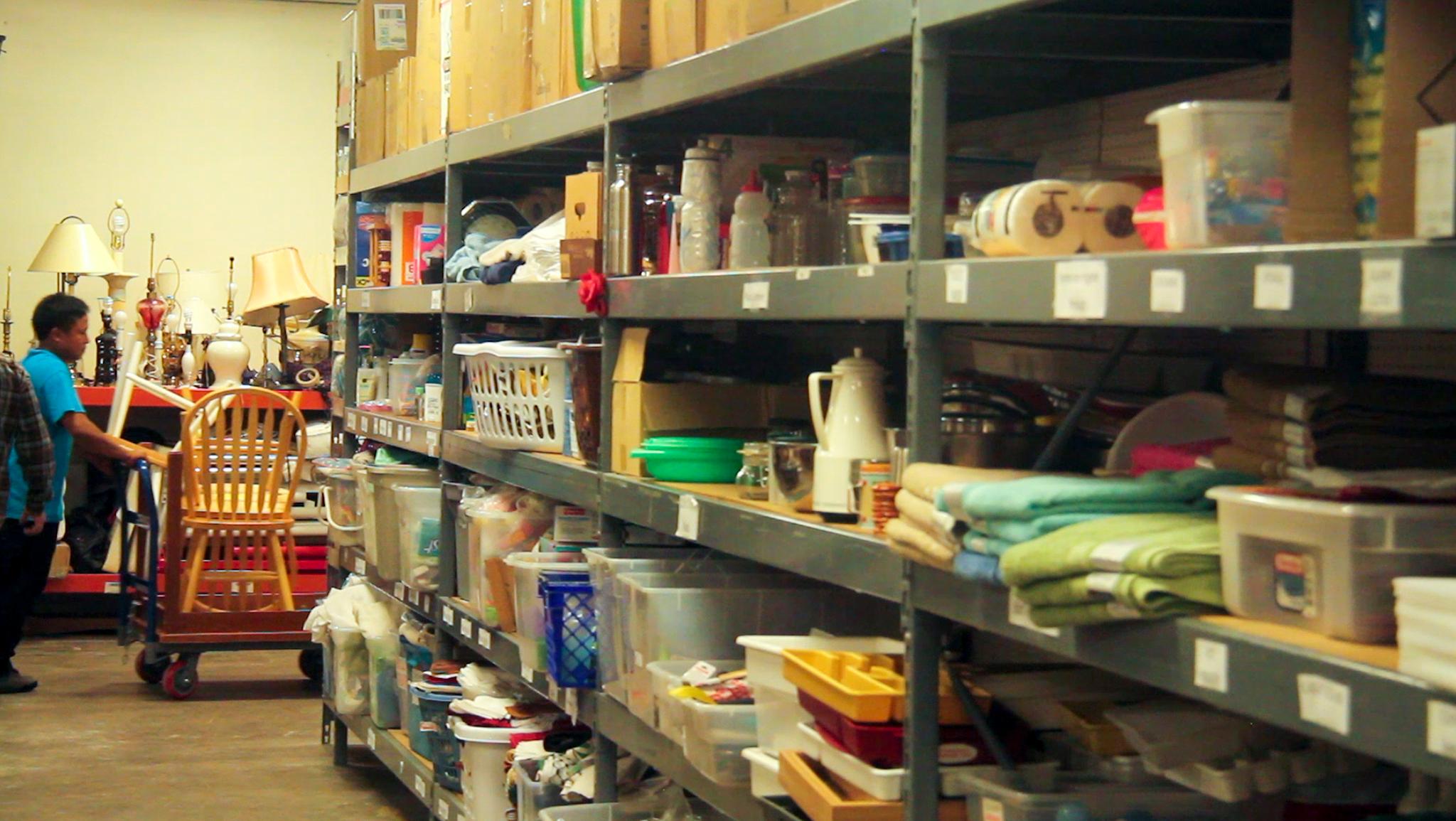
Kevin J. Beaty/Denverite
"Most resettlement agency offices, many were just shut down completely. They couldn't justify staying open," Kate Weatherbee, with the Denver-based African Community Center, told us. "We had to cut our staff over 50%."
The volume of people resettling into the metro right now isn't that high compared to numbers before Trump's decision, Weatherbee said, but local agencies like hers are still working to ramp up staffing as they work to find homes for Afghan refugees: "We just weren't prepared."
Here's the good news: A lot of people have stepped up to keep the work going.
As Afghans arrived in the U.S. and resettlement groups like the African Community Center got their gears turning, people began to come out of the woodwork to pitch in. That included an army of volunteers with Team Rubicon, who've been delivering furniture to people who've recently moved into new homes. The Federal Emergency Management Agency has been sourcing stuff like this from Craigslist and Facebook Marketplace, then sending volunteers like Brad Horner out to pick it up.
Team Rubicon was founded by a group of U.S. military veterans who saw a use for their logistical and organizational skills after the catastrophic 2010 earthquake in Haiti. That's when Jordon Daniel, who served in the Navy, heard about the group and felt a calling to join them.
"It was a small group of veterans that just pulled together without much of a plan, utilizing a lot of their own funding, but went down and made a significant impact. And with that impact, they realized this is something that veterans can do a heck of a lot more of," he said. "It's providing that sense of service, that sense of purpose and camaraderie, while at the same time making a tremendous impact in our local communities."
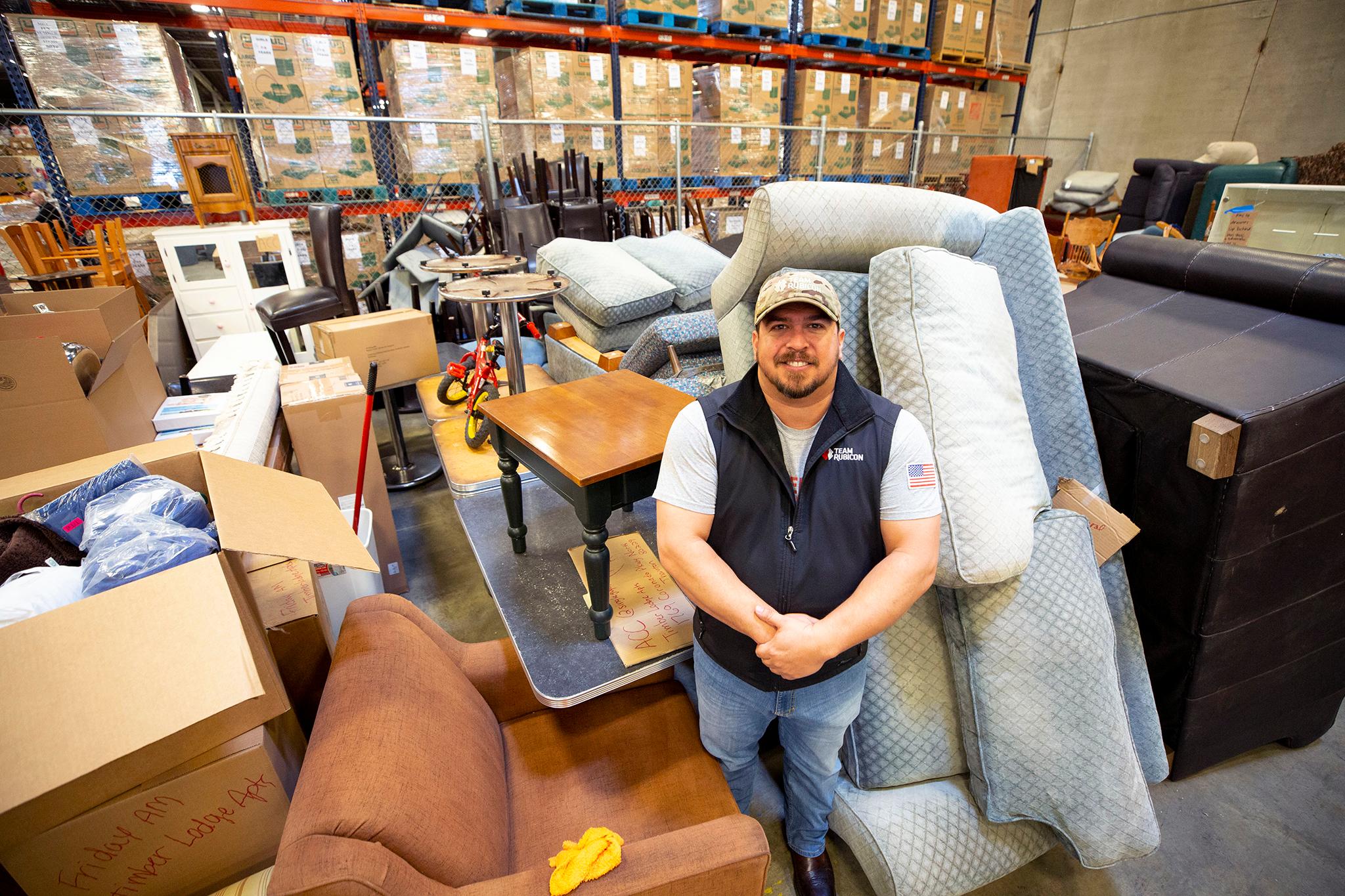
There wasn't much of a Colorado chapter when Daniel joined the group in 2010, but the Big Thompson Flood in 2013 transformed it into a major player in the state. They now have a volunteer list of 6,500 people in Colorado. While they're not the largest Team Rubicon group in the nation, Daniel said they're likely the most active.
Most of the time, Team Rubicon's teams in the state help mitigate fire risk in the high country or respond to natural disasters. When word got around that they'd help resettle Afghan refugees - including many who served with U.S. troops - a wave of new people began to sign up.
"Twenty years of war coming to an end was a pretty big deal, not just for our country, but certainly for the veteran community," he told us. "The way I can measure it is the number of Afghan veterans that are coming out to help support this operation. We have not been hurting for volunteers. Volunteers have been coming out in droves."
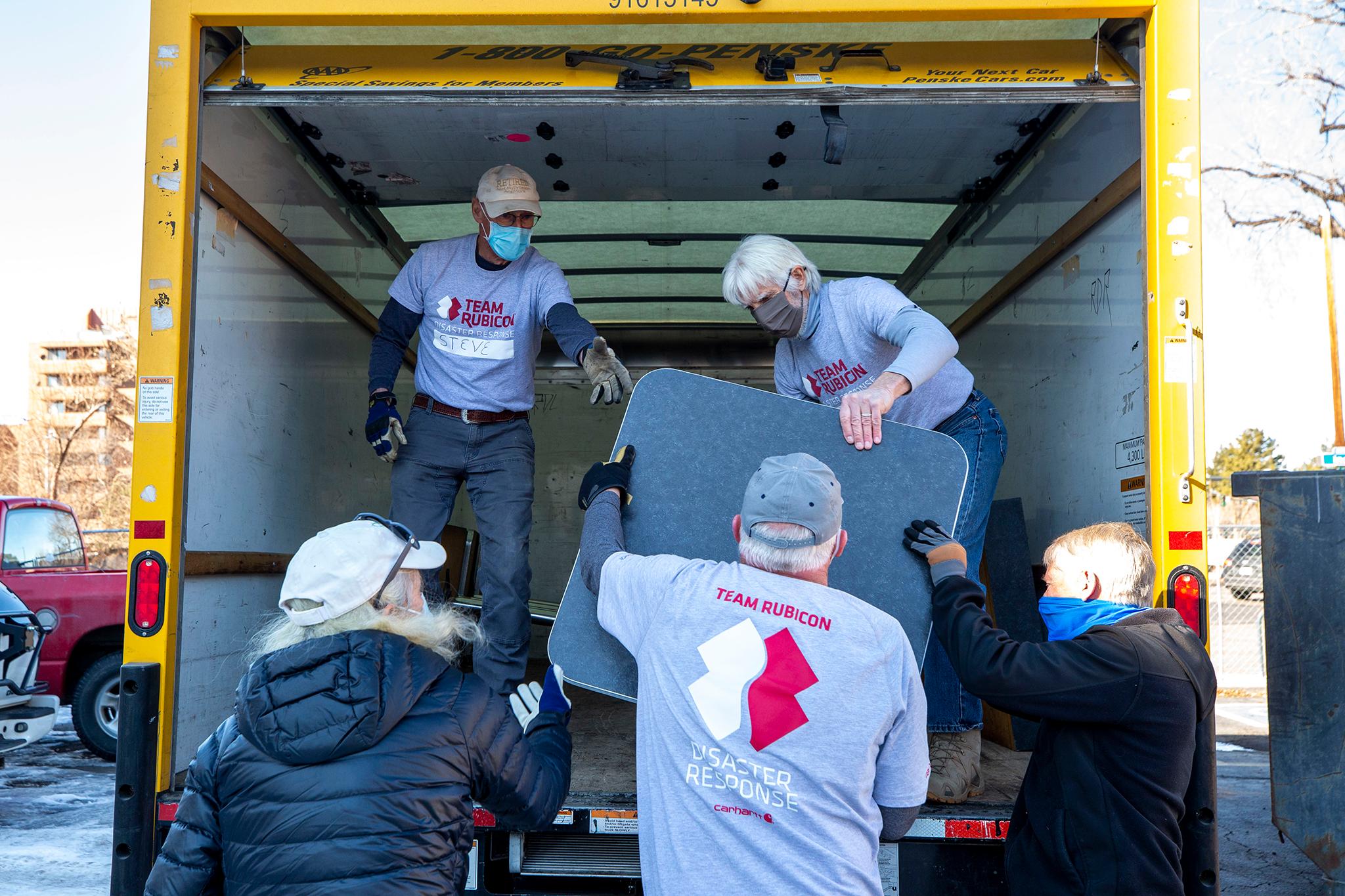
Daniel said about 60 percent of his Colorado workers are former service members. Many of the rest are connected to the military in other ways. While he said people with that experience are usually interested in humanitarian aid, these people feel a particular responsibility to help with this resettlement push. Tens of thousands of Afghans who served with western forces are still trying to leave their homes and escape threats from the Taliban. Some have already been executed for their roles in the war.
"You know, not all of those folks made it out," Daniel said at his desk in a Salvation Army warehouse, surrounded by furniture on its way to fill homes around the city. "It's kind of been unspoken, but there's just a sense of, man, we owe it to these folks coming in that did."
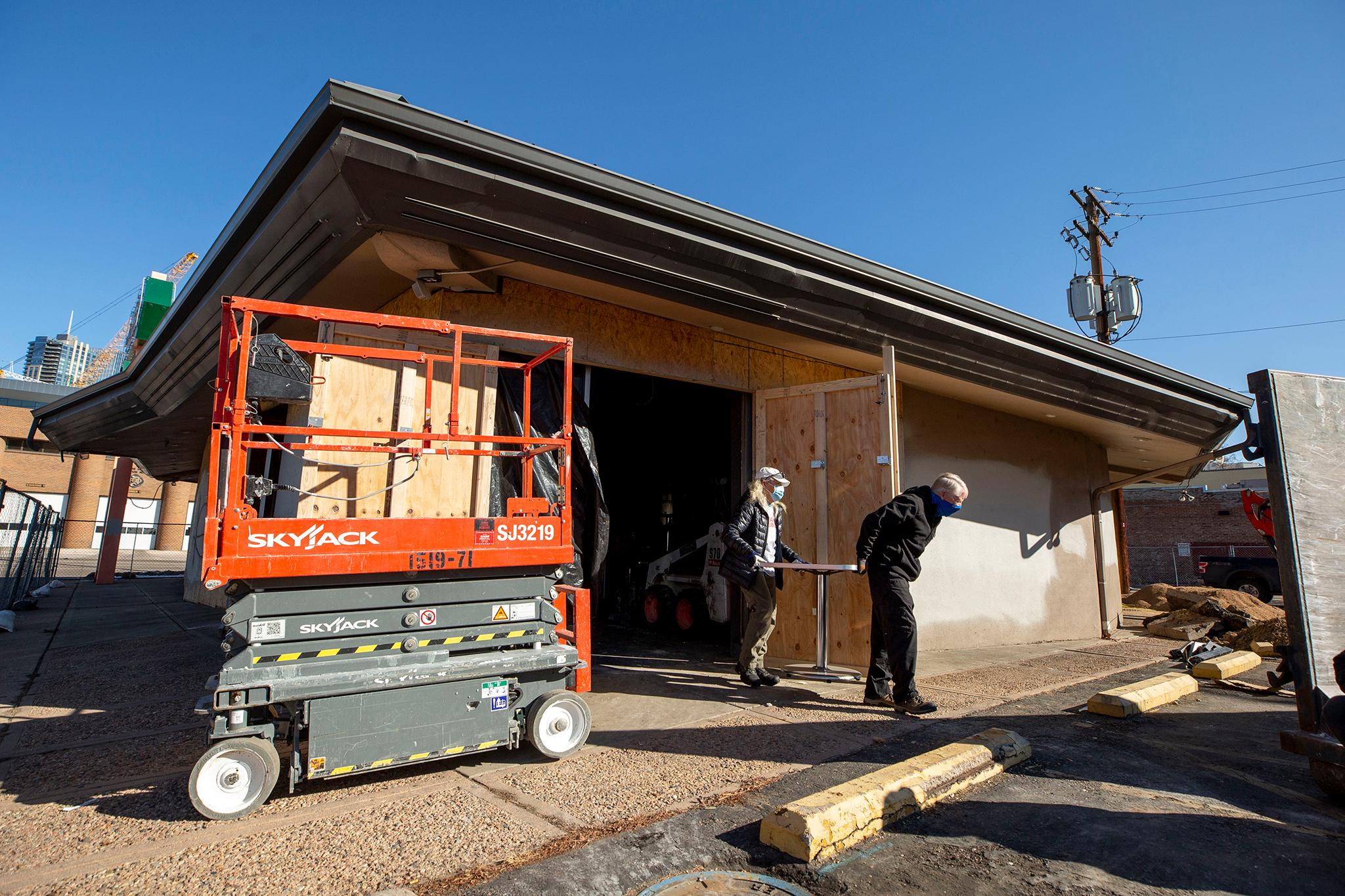
Weatherbee, with the African Community Center, said Team Rubicon's work is going a long way to fill the capacity gap service providers have been trying to correct. As resettlement agencies get back on their feet, these volunteers - along with the tables and chairs they've collected - will ensure Afghans who are starting new lives here have what they need to gather, eat and thrive.
Correction: This story originally misnamed Team Rubicon as "Project Rubicon" and has been corrected throughout.

